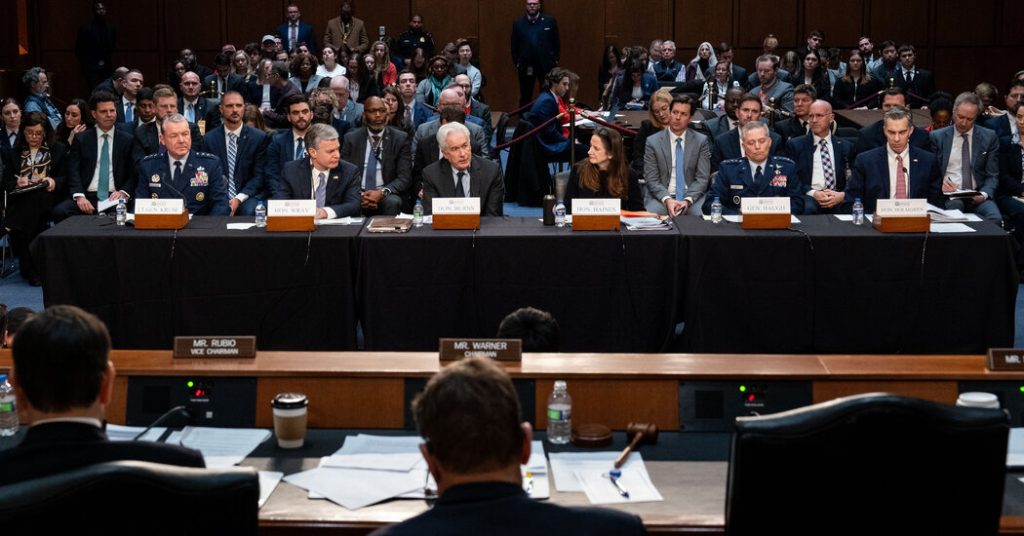Even after leaving office, Donald J. Trump has continued to display animosity towards intelligence officials, viewing them as part of a politicized “deep state” that is out to get him. His distrust has escalated into outright hostility, with implications for national security if he is re-elected. Trump believes his 2016 campaign was spied on by intelligence agencies, leading him to urge his allies in the House to “kill” a bill extending a surveillance law crucial for gathering foreign intelligence. His legal battles include indictments for hoarding classified documents and obstructing their retrieval.
Trump’s belief that intelligence agencies are biased against him since his first impeachment has fueled his legal arguments and animosity towards them. He has expressed a desire to “demolish” security agencies that he believes are enemies. This situation poses a challenge and potential destabilization as a former and future president expresses disdain towards intelligence officials on whom he would rely for sensitive information. Some intelligence officials are considering early retirement if Trump is re-elected, fearing retribution, purges, or interference.
The origins of Trump’s antagonism towards intelligence agencies can be traced back to the 2016 campaign and the Russia investigation. He and his allies discredited the inquiry as a witch hunt by intelligence agencies. Despite the lack of interference in intelligence collection during his first administration, Trump’s actions in office and after leaving, such as revealing classified information and challenging his own agencies’ conclusions, present concerns about his handling of national security.
As Trump potentially returns to power, there are fears within the intelligence community regarding his intentions towards them. Although there has been no specific plan laid out for handling spy agencies, his past tendencies to attack subordinates and promote loyalists could signal a desire to shake up intelligence leadership. Changes in regulations and appointments could make it easier for Trump to implement his agenda within the intelligence community.
Potential changes in civil service regulations, easier removal of perceived obstacles, and appointment of loyalists to key positions within intelligence agencies could reshape the landscape under a second Trump administration. While there is uncertainty about Trump’s intentions towards the intelligence community, his record as president, including perceived security breaches and confrontations with intelligence professionals, serves as a guidepost for what may transpire.
Trump’s rhetoric against the intelligence community, combined with his history of conflicts with intelligence officials, raises questions about the future of national security under a potential second Trump administration. There are concerns about his lack of faith in intelligence professionals and his perceived tendency to view them as enemies. The prospect of a renewed power struggle between Trump and the intelligence community creates uncertainty about the handling of sensitive national security issues.








